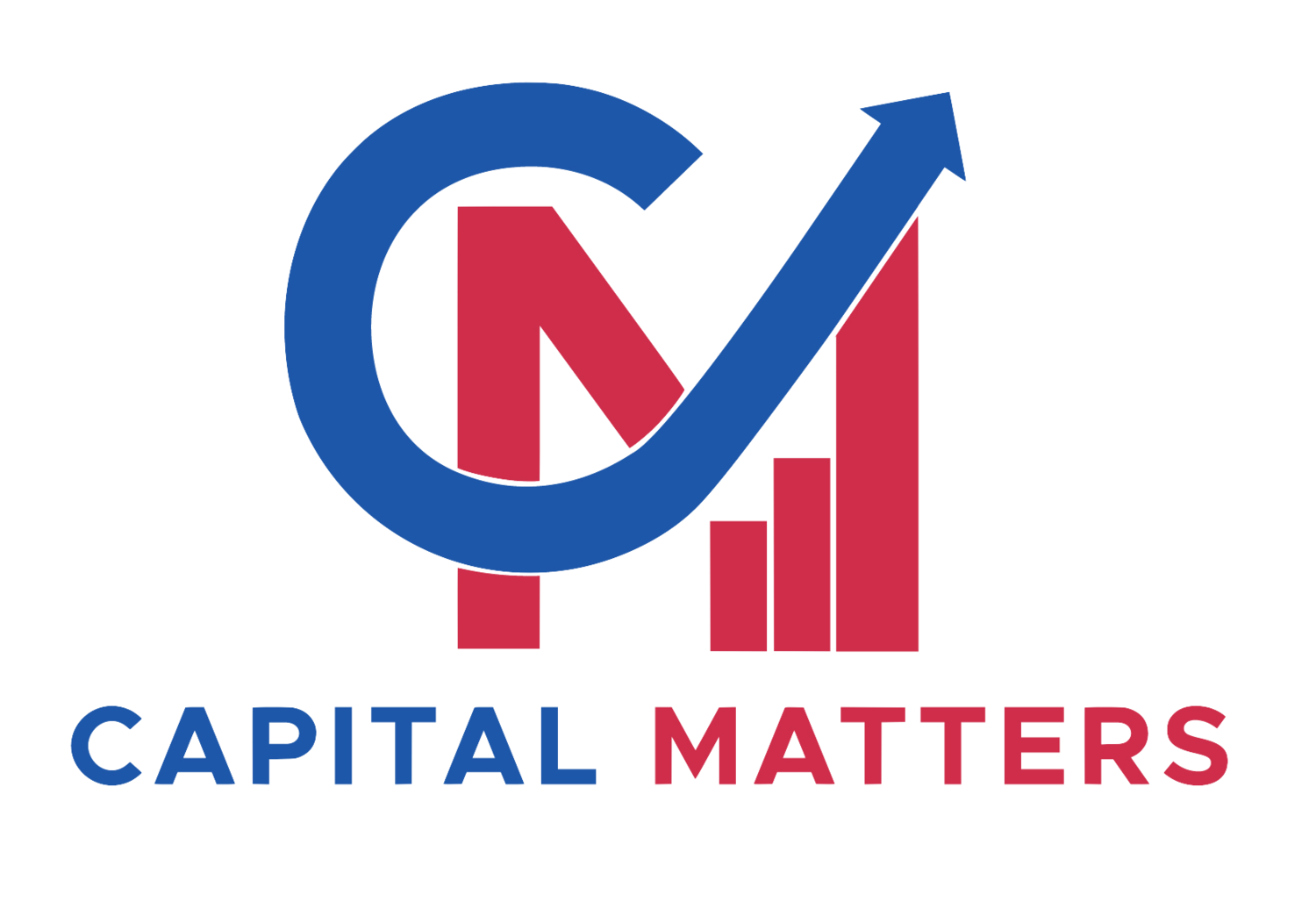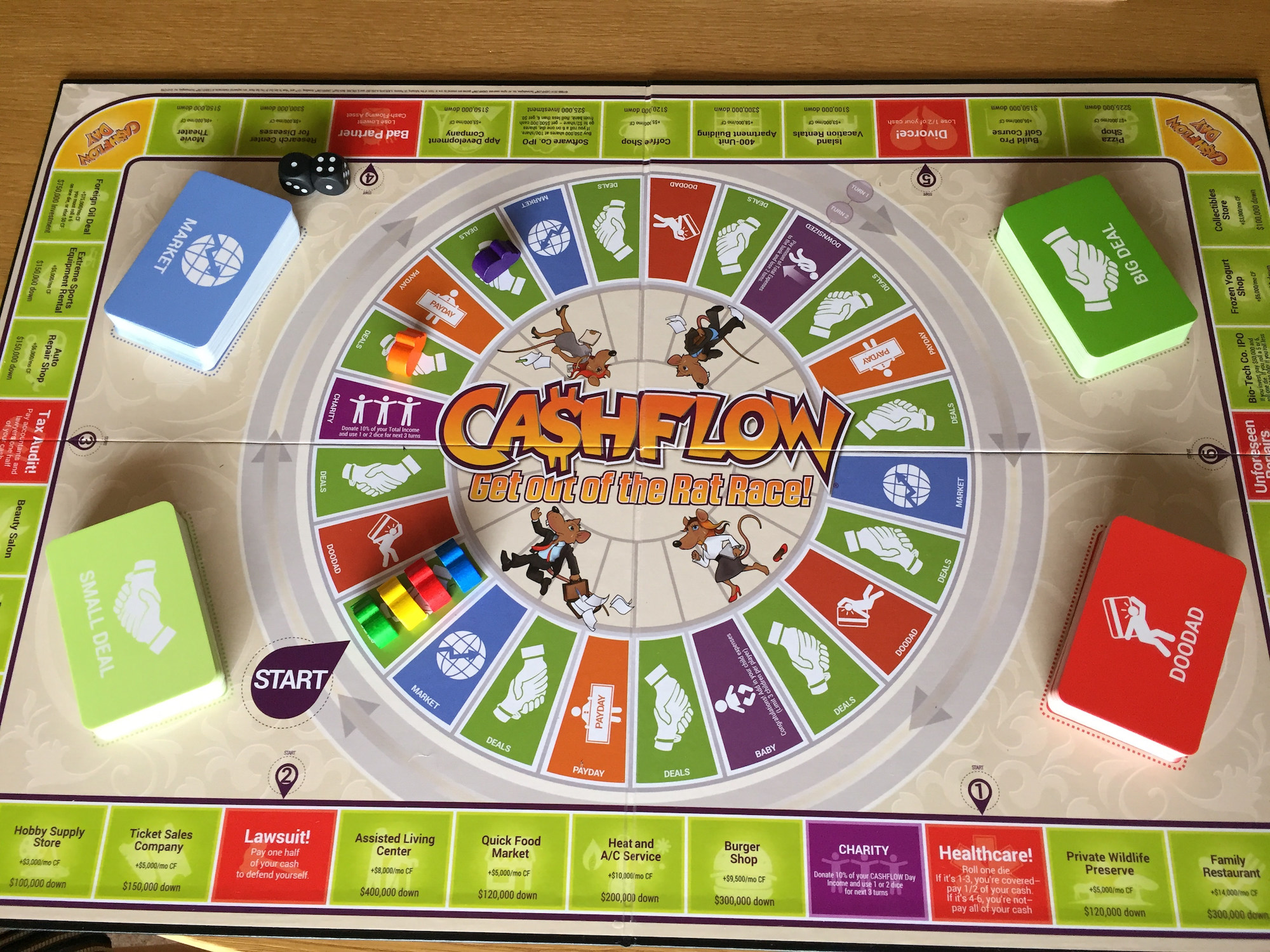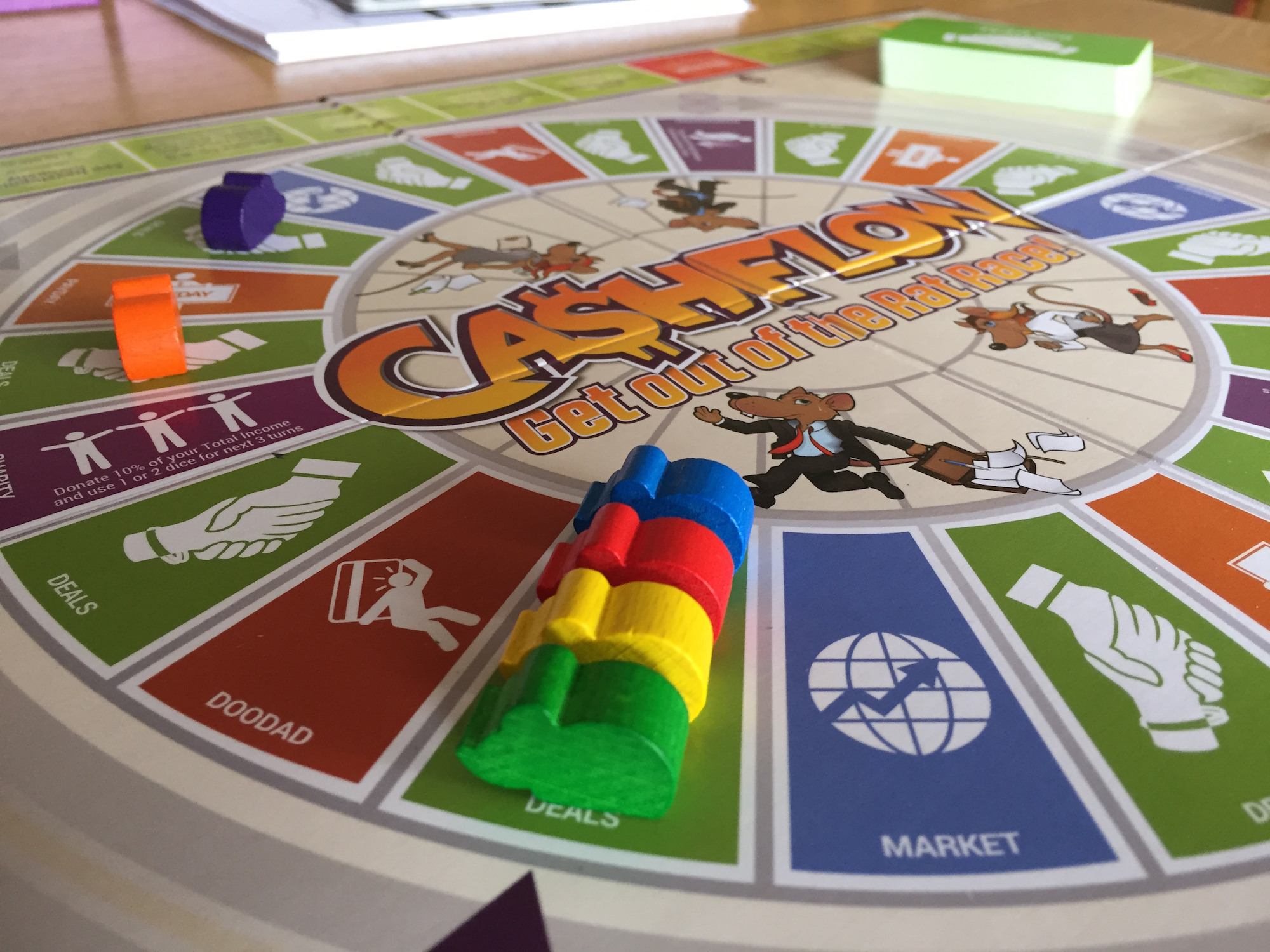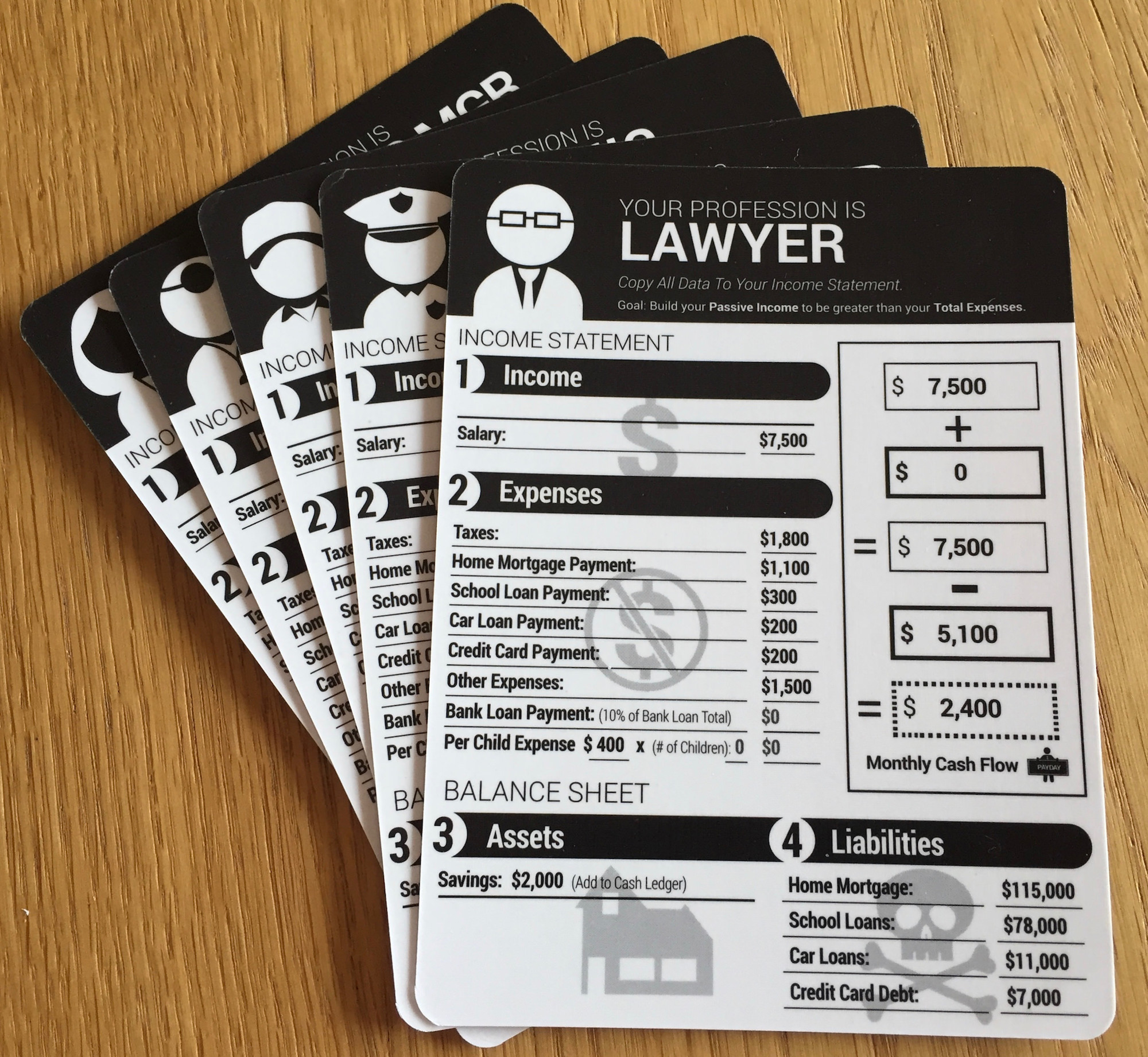Why Cashflow is Better Than Monopoly
/If you asked most people to name a board game related to finance, their first answer would probably be Monopoly. Whilst I do like Monopoly, there are a few flaws with it. Firstly, the income/expenditure ratio is a bit unrealistic.
You start out earning £200 which is enough to buy the entirety of Whitechapel, with enough leftover to purchase Old Kent Road. Towards the endgame, the most attractive square on the board aside from ‘go’ is usually jail, so you can avoid rental payments.
And whilst the start is usually fun (picking up properties, growing your capital, etc.) the end is pretty boring. Usually one player is steaming ahead of the rest and if it’s not you, you end up mindlessly rolling the dice until you go bankrupt.
The Main Concept Of The Cashflow Board Game
A much better board game, in my opinion, is Cashflow by Rich Dad. Created by the author of Rich Dad, Poor Dad, Robert Kiyosaki (note, one of my favourite personal finance books). The main concept of this game is that you start out with a 9-5 and your aim is to grow your passive income to the point where you can ‘get out of the rat race’.
I’ll be covering the original Cashflow board game in this article, also known as Cashflow 101 (the classic version). There are a couple of versions of this game floating around, some with more advanced features (see Cashflow 202).
At the very start of the game you are randomly dealt a profession (eg. lawyer, mechanic) via a profession card. You start by copying down your monthly income and expenses onto a financial statement. Your only income is your salary and your expenses can include taxes, a mortgage, a school loan payment etc.
The money you have leftover after your expenses is your cashflow. Everyone starts with positive cashflow and some savings but all of the exact numbers differ depending on your profession.
Everyone starts in the smaller central circle also known as ‘The Rat Race’. During each turn you roll a single die and you move around the circuit. There are a few different squares. If you land on or pass ‘Payday’, you receive your monthly cashflow and add that to your cash ledger (this could be negative too if you have negative cashflow).
If you land on ‘Deals’, you can pick up either a small or big deal card. A big deal card will show you an opportunity costing more than $5000. This can be anything from a business opportunity, to real estate, to company shares. You can decide whether to take it or not.
A ‘Market’ square dictates something happening in the market, which affects every player. This might be a stock split/reversal (all shares in one company are doubled/halved respectively). Or it might affect house prices/commodities etc. The ‘Doodad’ square is effectively a one off expense that you have to pay, like a concert ticket or a jet ski.
There are also some unique/entertaining squares. You might have a child which increases your expenses (tip: you don’t want a child in this game). Or you might land on ‘Downsized’, where you lose 2 turns and pay the amount equal to your total expenses to the bank. There is also a charity square where a donation grants you the ability to roll both dice for up to 3 turns.
On every turn you can choose to take out debt (you might be forced to). And you can pay off debt to reduce your expenses. Once your passive income has surpassed your total expenses, you are out of the rat race. You then move to the outer portion of the board where you continue to invest until you increase your cashflow day income by $50,000. When you do that, you have won the game.
Cashflow Has Greater Realism
The main problem I have with monopoly is that it is a financial-based game that isn't really based in reality. Circling the board, being forced to pay rent to various landlords makes little sense. If you have enough money to buy 4 houses on the most expensive square on the board, why are you still renting various cheaper properties? Where do you live? Why are you 'just visiting' jail all the time? The idea of gaining a monopoly to win a game is an intriguing one. But the execution of this idea, in my opinion, could have been done better.
The great thing about Cashflow is that hidden in it's gameplay are some financial lessons based in reality. When you start the game you are working a 9-5 job and earning a somewhat realistic sum of money based on your occupation. If you have a well paid job, you start off with larger liabilities and your expenses (eg. tax, school loan payment) are relatively high. To get out of the rat race your passive income will need to be higher than that of someone in a lower paid profession.
Cashflow Has Multiple Winning Strategies
When you play Cashflow you will notice that neither your income nor expenses are fixed. Whilst your aim is for your passive income to be greater than your expenses, you can attack this from either direction. You can buy income-producing assets to increase your passive income and/or pay off some of your liabilities to decrease your expenses.
In either case, your aim is for your cashflow to increase. This is a financial lesson in itself. It's your cashflow, not just your income that you should be paying attention to. Your income might be high but if your expenses are higher, you are effectively losing wealth. You ideally want it to be moving in the other direction.
Leveraging Debt
In monopoly, you can't buy if you don't have the cash. You cannot go into debt. In Cashflow, you can and it can make you or break you. Yes, debt increases your monthly expenses. But what did you use the debt to pay for? If you land on a doodad square, you might be forced to take out a loan to pay a one-off expense, like a child's braces.
If this is the case, your monthly expenses increase but your income doesn't. If you land on a deal square, you might be making the decision to take out debt to increase your income (eg. buying a business).
If the income you receive is greater than your bank loan expenses, this is positive cashflow. The Kiyosakis' built a lot of their wealth by leveraging debt. Whilst it's a controversial strategy, the game does not force you into debt leveraging. It's just an option you have, like in reality.
Thought Is Required
Monopoly has a limited number of properties, houses and hotels. This encourages you to buy everything as soon as possible (if you can). This lack of supply ultimately means decision-making is less of a necessity, you just buy when you can. In Cashflow, there is no limit to the number of properties you can own (although you'll probably finish before you get too many).
Every time you land on a deal square, which is every 2nd square on the board, you have to decide whether you want a small deal or a big deal. Small deals require less capital but big deals offer larger rewards. You first have to decide which deal you're going for and then you can decide whether or not to take it.
If you land on a market square, you might have the opportunity to sell an income-producing asset for a short term capital gain. The passive income might be important but capital could be used in a number of ways. Buying a larger asset, paying off debt, short term savings. You have options and therefore decisions to make. On a scale of luck to skill, I would say cashflow requires more skill and monopoly requires more luck to win.
My 7 Tips For Playing
1. An Order to The Income Statement
If you have to add/remove something from your income statement, do it in this order. Assets > Liabilities > Expenses > Income > Passive Income/Total Expenses > CashFlow. The main reason for this is just so you can keep track better, as this flows more naturally.
Let’s take the example of buying real estate. First, add that to your asset column and then add the mortgage to your liability column. Add the rental income to your income column and adjust your passive income. Then recalculate your monthly cash flow.
2. Loans before Payments
If you are taking out a loan in order to buy something like real estate, do it in stages. Firstly, add the amount to your cash ledger and adjust the monthly loan payment. Then pay the downpayment by removing the appropriate amount of money from your cash ledger. This is cleaner than doing everything at once. It makes it easier to audit yourself and other players as mistakes can be made.
3. Big Deals Over Small
Big deals tend to get you to the end game quicker but be careful of loans you have to take out. You can go bankrupt if your cashflow is negative and you run out of money.
4. Beware of Doodads.
A doodad can range from a cup of coffee to a jet ski. I once had to take out a loan to pay for a jet ski when my income was low and I had no assets to speak of.
5. Don’t buy precious metals.
In this game they’re a really bad investment. Returns are unlikely and minimal at best.
6. Buy real estate.
The company behind this game is Rich Dad, owned by Robert Kiyosaki. Robert Kiyosaki is a huge proponent of real estate and therefore I’m not surprised that this is the easiest way to win the game.
7. Assets over Liabilities
Building up assets helps your cashflow more than paying off liabilities. Both are important but I would go for assets first and then reducing your expenses when you’re close to exiting the rat race. This tip doesn’t apply to bank loans. The interest rates are so large ($100 monthly payment per $1000 loan) that paying these off really does help.
3 Cashflow House Rules
House rules have actually caused a lot of problems with Monopoly. Specifically, most increase the length of the game. The rule that you receive all player-paid fees when you land on free parking is a house rule. The rule that you don’t get to buy properties until after your first circuit of the board is a house rule. The rule that there is no limit to the amount of houses/hotels in the game is a house rule. You get the picture.
But Cashflow, in my opinion, is a game which could benefit from some house rules. Here would be my list of additions/alterations.
1. No Fast Track Segment.
There are a lot of problems with the fast track segment. Firstly, the arbitrary numbers. You suddenly multiply your passive income by 100x to get your starting cashflow day income. You have to increase your cashflow day income by $50,000 to complete the game. The only asset you take with you into this portion of the game is your cashflow. You forget any assets/liabilities/expenses.
The real goal of this game is to ‘get out of the rat race’. And that segment of the game is very entertaining. So, in my opinion, just make that the end goal.
2. Have both players start with same profession
It is possible for you to win the game in a low income profession when your opponent has a high starting income. Your opponent will have larger liabilities to start and increased child expenses throughout the game.
But in my experience it is more challenging and therefore could do with some rebalancing. Until then just play as the same profession.
Alternatively, you could allow players to pick their profession.
3. Incrementally pay off debt
In the real world, you pay off a small portion of your mortgage regularly. This is not an in-built mechanism in cashflow. This is probably because it makes the game more complex. Instead you have to pay off the liabilities you start with when you can afford to pay off the full balance, wiping out the monthly expense. But if you are looking to increase the realism and the complexity here is how you can do it.
Firstly, when copying the details from your profession card, ignore the monthly payments related to your liabilities (eg. mortgage payment, car loan payment, student loan payment). Instead just look at the total balance of the liabilities.
Decide on a realistic monthly repayment percentage. Here are my suggested rates (which are balanced for the game). You would then use these to calculate your monthly payment based on the total value of the loan. I have included an example below.
If you decide to pay off a portion of your liabilities, you can only do so in $1000 increments similar to paying off bank loans. So using the example above, if you decided to pay off $10,000 of your mortgage, your monthly payment would decrease by $100, to $1000 per month. Similarly, if you decided to pay off $5000 of your credit card debt, your monthly payment would decrease by $150, to $60 per month.
Conclusion: Try Cashflow
Cashflow is a great game which is both entertaining and educational (and not just from a maths perspective). It is designed to alter the way you think about money and it does so very effectively. You can replay it and use different tactics. You might switch from a focus on debt reduction in one game to leveraging debt to buy income-producing assets in another.
You can learn from other players and talk about different tactics, some of which are applicable in the real world. If anything I recommend trying it out instead of monopoly on one occasion and seeing what you think. You can check prices on Amazon here.
Rating: 8/10
Have you played Cashflow or are you thinking of trying some of the house rules I suggest? Have you tried playing Cashflow with kids? Hit that like button and let me know in the comments down below.









The best UK free share referral offers, updated throughout June 2025. Get free stocks and shares with Shares App, FreeTrade, Stake and more.